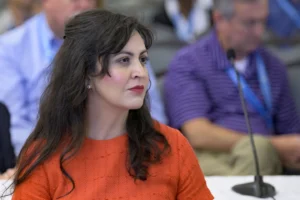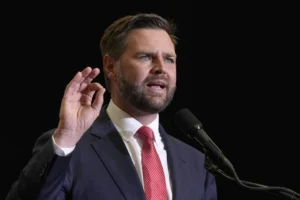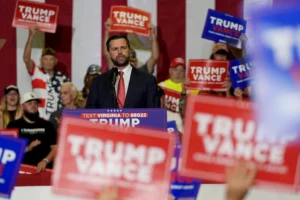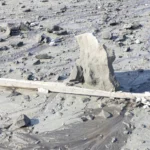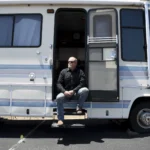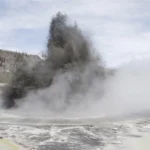LEGISLATIVE WATCH WYOMING: Proposal to Cap Property Taxes Wins Committee Support
More than a dozen tax relief bills on the table
- Published In: Politics
- Last Updated: Jan 21, 2023
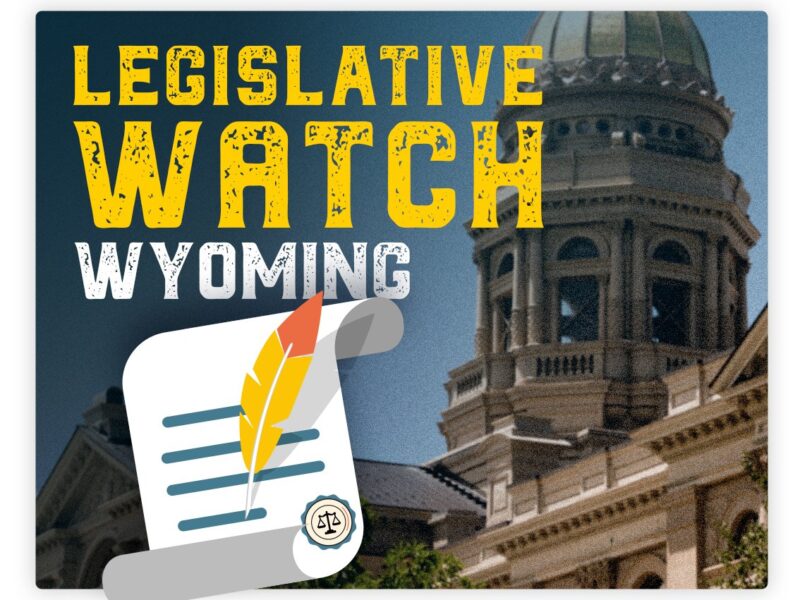
By CJ Baker
Special to the Wyoming Truth
Sen. Dan Dockstader has compiled a “big thick binder” containing all the property tax proposals that have failed in the Wyoming Legislature in recent years. Some date back to 2006 and 2007, when property values shot up in two western counties but not as much in the rest of Wyoming.
“… It was hard to get the legislation through,” recalled Dockstader, a Republican from Afton.
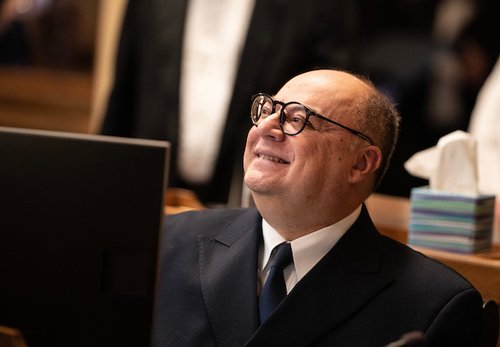
Following a post-COVID surge in real estate prices, he said the entire state is now experiencing “incredible” tax increases. This time around, “hopefully we’ll get a little more ahead in finding a solution,” Dockstader said.
There is no shortage of options: Over a dozen pieces of property tax-related legislation have already been introduced and more could be filed in the coming days.
On Thursday, the Senate Revenue Committee advanced three of those proposals: one focuses on providing tax relief to the elderly and the poor and would require a constitutional amendment; one would set up a new entity to help residents to obtain low-interest loans to pay their taxes; and another would cap property tax increases at roughly 5% per year.
“There’ll be many of them coming down the line, and we’ll see which ones make it through,” committee member Sen. Tim French (R-Powell) said at the end of the hearing. “But we have to do something, folks.”
While there’s widespread agreement on the need for action, deciding what to do is the challenge for lawmakers.
Sen. Tim Salazar (R-Riverton) gave an impassioned pitch for his proposal, Senate File 125. It says the taxable value of residential, commercial, agricultural or personal property can increase by no more than 5% in a given year.
“You know as well as I do the phone calls that we’re all getting from people who are almost crying on their phone,” Salazar told his colleagues, “because they’re going to have to move out of the house that they’ve lived in for 25 years because they can’t afford the [tax] assessments.”
Park County Assessor Pat Meyer opposed Salazar’s concept a year ago, but flipped his position and began advocating for a cap after Park County property values rocketed 25-45%; some tax bills shot up by as much as $1,500 in a year.
“And the bad news is it’s going up again,” Meyer said, noting another 20% jump could be in the cards in Park County.
It’s been a dramatic change from the recent past: From 1996 to 2021, Meyer said Wyoming’s residential, agricultural and commercial properties increased in value by an average of around 6.3% a year.
Most of the tax dollars go to K-12 education, but they are also a key source of revenue for county governments and various special districts. Jerimiah Rieman, the executive director of the Wyoming County Commissioners Association, spoke against the proposed 5% cap, saying commissioners want to make sure they have enough revenue to provide services.
Had the cap been in place from 1993 to 2021, Rieman said state and local governments would have received $3.88 billion less, with counties losing $660 million.
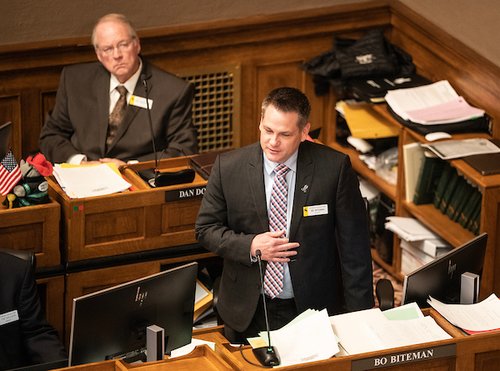
“We’re not trying to get rich, we’re not trying to pile on,” Rieman said earlier in the meeting. “But at this point in time, nobody’s saying that their roads are smooth enough and that the ambulance gets there on time and all the rest of the stuff that we’re responsible for providing.”
Constitutional questions
Beyond the concerns about revenue, the Legislature’s attorneys have said that capping a property’s taxable value is likely unconstitutional, because it treats properties in the same class unequally. For instance, the owner of a home that abruptly jumps in value from $200,000 to $300,000 would pay significantly fewer taxes than someone who builds a new $300,000 home.
For his part, Salazar argued that lawmakers should pass the 5% cap and fight for it in court if necessary.
“At the end of the day, when you go back to your constituency, they’re not going to ask you about your legal reasoning,” he said. “They’re going to ask you, ‘Did you do something to protect us from the increase of property taxes that are leading us to have to sell our homes?’”
However, Peter Obermueller of the Petroleum Association of Wyoming questioned why the Legislature would take on that fight when there are other options.
“There are people hurting,” Obermueller said, “and through refund programs and other ideas, you can get cash back in their hands this year without going down this path of trying to divide the taxpayers again in Wyoming and drive that apart even more, between minerals and what everybody else pays.”
Wyoming’s minerals industry pays most of the state’s property taxes. That’s largely because minerals are taxed on 100% of their market value while residences, businesses and agricultural lands are taxed on 9.5% of their value.
In an effort to skirt the constitutional concerns and still provide relief, Sen. Bo Biteman (R-Ranchester) is proposing that residential, commercial and ag properties be taxed on only 7.5% of their value.
Another alternative put forward by Sen. Cheri Steinmetz (R-Lingle) would only allow governments to collect enough taxes to cover the prior year’s revenue plus inflation. Meanwhile, a bill sponsored by the Joint Revenue Committee would expand a property tax refund program for lower-income individuals and three other resolutions would ask voters to amend the state constitution and explicitly allow the Legislature to provide special tax exemptions for residential properties.
Just before the revenue committee advanced the 5% cap on a 4-1 vote, chairman Biteman noted that “this isn’t the only horse to ride here.”
“We’ll push bills through that the whole body can vet, because property tax reform is probably the No. 1 issue that we face this year,” he said. “We want to get it right.”

